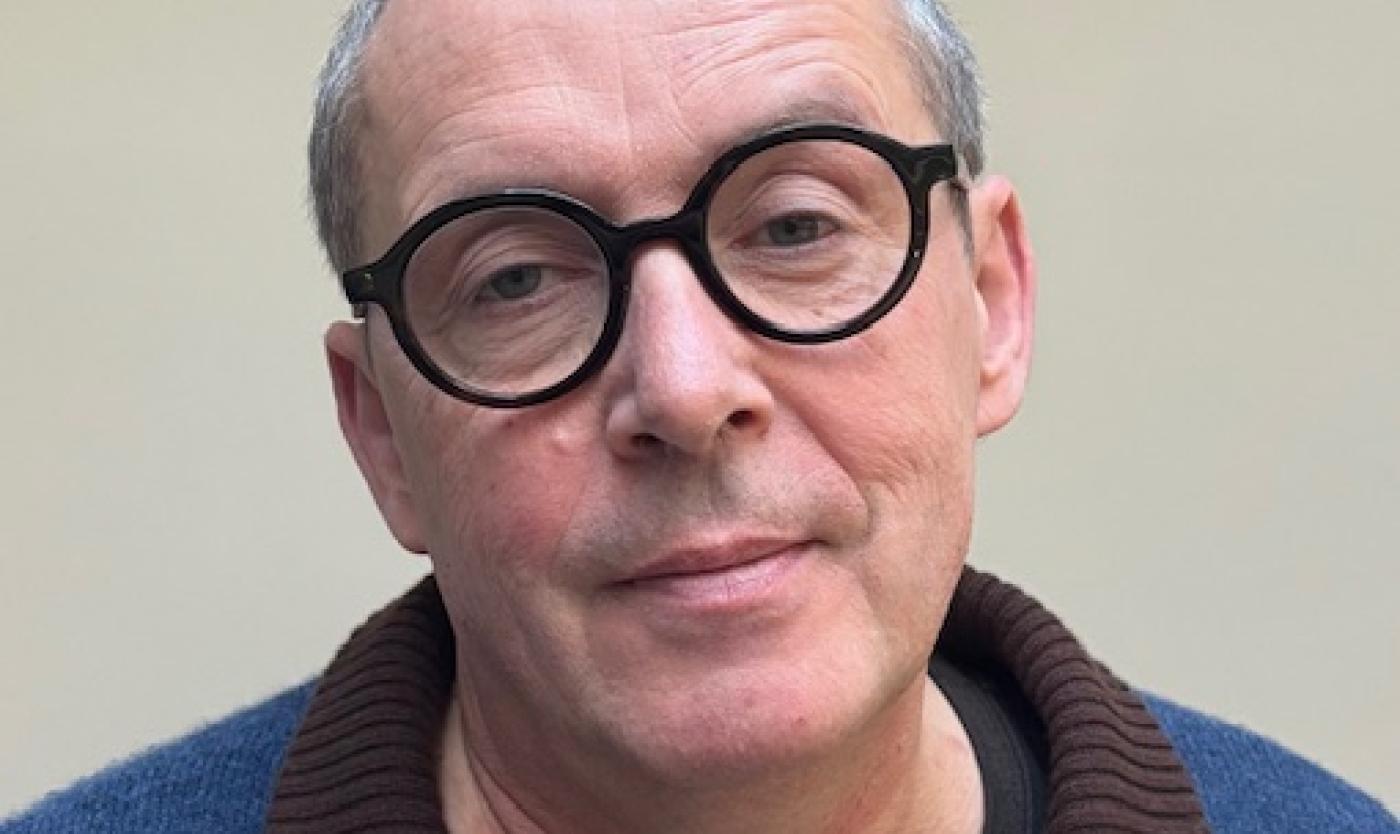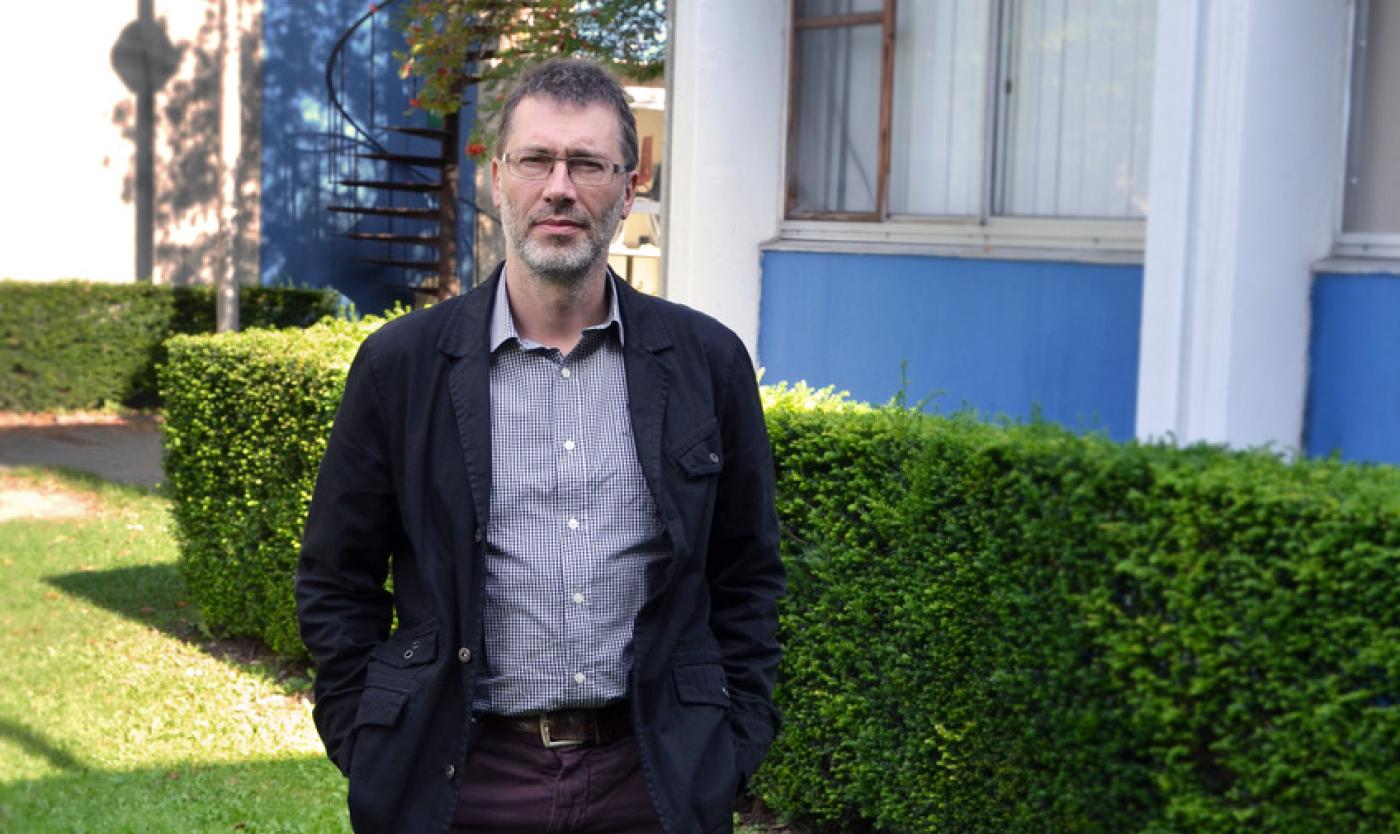
With the Education Award in Flanders, Frank Van Holen, visiting professor at the Vrije Universiteit Brussel (VUB), is recognised for his decades-long commitment to foster care. For over 20 years, he has bridged science and practice alongside Professor Johan Vanderfaeillie (VUB) to give foster children the best possible opportunities. Their mission? To improve foster care, guided by research.
Congratulations on receiving the Education Award in Flanders. What does this recognition mean to you?
Frank Van Holen: “Thank you. I didn’t expect it. It’s a great honour, but above all, it recognises all the people I work with. Over the past 20 years, we have focused strongly on connecting practice, policy, and science, together with the VUB and especially with Professor Johan Vanderfaeillie. Our strength lies in the combination of Johan’s academic perspective and my practical experience. We can have intense discussions, but we always reach a common understanding. That’s why we have been working together for so long—and why we will continue to do so.
The core of our work is to better substantiate what we do and thereby strengthen foster care. We plan to invest the funds from this award in a PhD project on sleep problems in foster children, a largely underestimated issue. In this way, we hope to support foster parents in improving the sleep hygiene of foster children. In everything we do, we try to tackle the areas where we think: here we can really make a difference.”

Frank Van Holen
- Director of Care Policy for Foster Care in Flemish Brabant and Brussels
- Visiting Professor at the Department of Psychology, VUB
How did you end up in foster care?
“Quite by chance. After my studies, I spent some time doing research at the university. My supervisor was the head of a foster care service and asked if I wanted to work there. That’s how I got involved. It also explains my connection to research. Foster care is a challenging form of care, but at the same time, an incredibly rewarding one.”
“Through research, we develop methods to empower foster parents and help them raise children positively despite all the challenges.”
How important is the combination of research and practice?
“Essential. About half of foster children show concerning behavioural problems, and 80% have experienced at least two traumas. You take a child into your home who often carries a heavy ‘backpack’ and needs extra support. Through research, we develop methods to empower foster parents and help them raise children positively despite the challenges. We also test for effectiveness: do behavioural problems decrease? Does parenting stress lessen? Translating theory into practice is crucial. Decision-making in youth care is often fragile, and research helps provide more equal opportunities for families.
Recently, we published a guide on contact arrangements between parents and children in foster care, helping foster care staff make decisions in a more systematic and evidence-based way. Together with other foster care services, we also established the Foster Care Knowledge Centre, with the important mission of translating scientific knowledge into practical insights for practitioners and families. They recently released the Foster Care Compass, which consolidates key insights on screening, guidance, and preventing breakdowns. This makes foster care the only branch of youth care in Flanders that can truly say: this is what we do and why.
"Is there a shortage of foster parents, or are there simply too many societal problems? The fact is, we don’t have enough placements to meet the demand.”

Johan Vanderfaeillie
- Professor at VUB
- Head of the Centre for Research in Youth and Family Support
More than a thousand children are waiting for a foster family. How has this come about?
“Since the 2014 Foster Care Decree—which merged foster care services into five provincial services and established foster care as the first choice when a child cannot live at home—the number of placements has more than doubled. Network foster care, with a grandmother, aunt, football coach… has grown especially strongly. General foster care, with families without a prior connection to the child, has remained roughly stable. Is there a shortage of foster parents, or are there simply too many societal problems? The fact is, we don’t have enough placements to meet the need. Steps are being taken to make foster care more attractive, such as parental leave for foster parents, but new challenges are also emerging. The number of unaccompanied minor refugees in foster care is increasing—a group that requires extra support. In network foster care we see more diversity, but general foster care remains challenging for families with a migration background. That’s why we invest in projects with key figures to raise awareness of foster care within different communities. There’s still a lot of potential here.”
What makes a foster family “suitable” in your view?
“The decision needs to be supported by the entire household. It’s also important how families approach life, view parenting, and their openness towards the child’s family. A foster child has almost always experienced a lot, which shows up in behaviour. Such a child is not a ‘problem child,’ but a child with difficulties who may display challenging behaviour. Foster parents need to find ways to respond and offer the child stability. Emotional regulation is crucial. You must stay in control during difficult moments and view the child through a ‘trauma lens’ that distinguishes behaviour from the person. To support foster parents, we have developed and implemented interventions focused on behaviour, trauma, attachment, and collaboration between parents and foster parents. Support that every foster parent should receive for the challenging role they take on.”
“The stories that go wrong make the news, while most placements go well.”
What do you think is the biggest misconception about foster care?
“That it often goes wrong. The stories that fail make the media, while the majority of placements are successful. I have immense respect for all those who open their homes 24/7 to a child that is not their own. Many outdated ideas persist, even among professionals. We no longer work the way we did 20 years ago. Today, guidance is much better substantiated—and we should be proud of that.”
If you had carte blanche in foster care policy, what would you change today?
“The caseload is too high, with 22 children per full-time worker. A caseworker can visit a family roughly every six weeks, which is often insufficient. The pressure is high across the youth care sector. Due to the strong growth in placements, we are constantly training new staff. We need stability. I also believe in solutions like family home care: a middle ground between foster care and residential care, where professionals receive payment to care for children. These could be people with pedagogical qualifications, or experienced foster parents. For children with heavy ‘backpacks,’ for whom we cannot find a foster family, this can help prevent them from having to grow up in a residential facility. This has existed longer in the Netherlands; Flanders is now taking its first steps.”
What advice would you give young researchers?
“Don’t just sit behind your desk—talk to people. Behind the numbers lies a lot of emotion, which you need to understand in order to grasp what families and children need. The best researchers are those who conduct rigorous research, but also pull on their boots and get into the mud themselves.”
Professor Johan Vanderfaeillie: "Frank brings the realities of the field into our work"
“If anyone has devoted their career unconditionally to the well-being of children, it’s Frank,” says Johan Vanderfaeillie. “For more than twenty years, we have been working to improve foster care through research. Frank brings the realities of the field into our work, and I connect those to scientific insights. That has always been our strength.”
“One of our first focus areas was the phenomenon of breakdowns: placements that end prematurely and for negative reasons. We were the first to study this in Flanders and were able to formulate proposals for improvement. Later, we focused on foster parents’ parenting behaviour and how it is challenged by young people with behavioural problems. From there, we developed training programmes to support and strengthen parenting skills. Recently, we wrote a protocol to better organise contact between parents and placed children—not based on intuition, but on scientific evidence.”
“Such research is invaluable. Firstly, because it is independent: it allows us to address issues that not everyone wants to hear, but that must be addressed. Only in this way can we make changes and achieve the ‘least bad solution’—because that is essentially what foster care remains—as effectively as possible. That Frank is now being recognised for this is, in my view, more than deserved.”
About the Filson Steers Mariman Award
The Filson Steers Mariman Fund awards a biennial prize. This award is given to a person from the Flemish Community who has devoted their life’s work to “the upbringing of children or young people.”
The prize recognises a sustained commitment over a career to the upbringing of children or young people, rather than a single project or initiative. The candidate’s involvement in child upbringing must be structural—either through their profession or position, or on a voluntary basis. The impact of the candidate’s work is expected to extend beyond the local level. The term “upbringing” is interpreted broadly. Candidates may be active in a wide range of fields related to upbringing or pedagogy, including education, welfare, culture, and more.